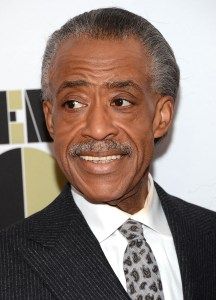In the Public’s Interest

African-American viewers tuned into MSNBC during primetime in record numbers in 2012, making the network the most-watched cable news channel among that audience last year and increasing its total-day African-American audience by 67%. Programming editor R. Thomas Umstead recently spoke with the Rev. Al Sharpton, host of MSNBC’s PoliticsNation, about the network’s appeal to black viewers, as well as the issues his show will cover during the upcoming year.
MCN: Why was MSNBC so successful in attracting African-American viewers in 2012?
Rev. Al Sharpton: I think several things. The issues that are very appealing and of interest to African-American viewers are a part of what MSNBC deals with and covers. We talk a lot about what’s going on in terms of those that are ignored and marginalized in society — those that are in the middle and working class — and, disproportionately, African-Americans are in that category. Those issues are discussed in an adult way, pro and con, from morning all the way through the evening.
Secondly, I host a show and I’m the only [African-American] evening host on any cable news station, which is really unthinkable in the 21st century. It doesn’t take a rocket scientist to figure out that if you have the only show hosted by a well-known African-American, you’re going to get a certain amount attention from the community, whether they agree or disagree with me. They feel that their point of view is respected.
Then you have any number of [African- American] contributors on the network. The other cable news stations may have [African-American] contributors, but they don’t have shows nor do they decide the content. Also, the content on a lot of [cable news networks] is straight news, and straight news doesn’t always include our issues because it’s usually what’s hot today and not what’s going on all the time. So I think the content, the broadness of the discussion and the fact that they have taken the steps toward diversity that others haven’t taken makes [MSNBC’s appeal] logical. You can’t plant watermelon seeds for oranges, so I think that the other cable stations have not planted anything that would reap that kind of response.
MCN: When you say the other cable stations haven’t planted anything from an African-American viewership standpoint, do you foresee that changing in the near future, given MSNBC’s success?
AS: I have no idea. It doesn’t make sense not to from a marketing standpoint. When [network president] Phil Griffin asked me to do the show, my initial reaction was one of shock. But my ratings have been the best in the six o’clock hour for MSNBC. So it can’t be that the other stations are staying away from [African-American hosts] because it doesn’t work — it works if they’re dealing with ratings, which is what the name of the game is supposed to be.
Multichannel Newsletter
The smarter way to stay on top of the multichannel video marketplace. Sign up below.
MCN: Going into 2013, with the re-election of President Obama, what issues will you focus on?
AS: Clearly, we’re going to focus on whatever becomes current, whether it’s the gun issue, which we’ve been on for a long time; voter rights, because that’s come back in about seven states with these voter-ID laws — we were the first to pound on it last year. The Supreme Court has on their calendar section five of the Voter Rights Act, so that will be a big story for us this year. We’re going to focus a lot on where we’re going with regards to the war on women — a lot of states are trying to make state laws against a woman’s right to choose, so we’ll stay on that. Immigration is going to be a big effort by the administration so we’re going to be all over that. We’re also going to pick up on what the mid-term elections are going to look like next year. By the time you come out of that, we’ll be looking at 2016, so content is not our problem … there’s almost too much content.
MCN: As you examine these issues, how critical of the Obama Administration will you be if these issues are not addressed?
AS: We’re going to look at these issues, and if the Obama Administration falls short we’re going to be very critical because we’re issue-oriented, not personality-oriented. One of the reasons I’ve been supportive of the president is because I supported him based on the fact that he said he would fight for health care, fight for educational reform, fight for equality in terms of class differences and disparities. But if he doesn’t fight for the reasons that we supported him then I’ll be just as critical.
R. Thomas Umstead serves as senior content producer, programming for Multichannel News, Broadcasting + Cable and Next TV. During his more than 30-year career as a print and online journalist, Umstead has written articles on a variety of subjects ranging from TV technology, marketing and sports production to content distribution and development. He has provided expert commentary on television issues and trends for such TV, print, radio and streaming outlets as Fox News, CNBC, the Today show, USA Today, The New York Times and National Public Radio. Umstead has also filmed, produced and edited more than 100 original video interviews, profiles and news reports featuring key cable television executives as well as entertainers and celebrity personalities.

